| The Black September Organization (BSO) was responsible for a string of blatant, headline-grabbing acts of international terrorism long before such events became all too commonplace. Somehow a daring raid by the BSO on the Israeli Embassy in Bangkok has received relatively little media attention in the years since it was launched on Thursday, December 28, 1972. On that day before noon, a squad belonging to the Palestinian terrorist group seized the Israeli Embassy in the centre of Bangkok. The events of the following 19 hours kept Thailand, Israel and the world in a state of suspense. IT started when two BSO operatives infiltrated a party held at the Israeli Embassy, which was then located on Lang Suan Road, near Ploenchit intersection. The two terrorists were disguised in formal evening attire complete with white ties and tails so they would blend in with diplomats returning from the investiture of His Royal Highness Crown Prince Vajiralongkorn, which had taken place that same day. Both terrorists bowed and smiled when they saw Police Private Sunchai Pienkana, who was standing guard. Two other militants climbed over the side wall of the embassy compound. According to Pvt Sunchai, “they had leather type jackets on that looked like the bulletproof jackets we use in the police force.” The two new terrorists brandished submachine guns and the two in evening attire reportedly had guns concealed under their coats. There were also reports that the attackers were armed with hand grenades and explosives. There was no security force capable of stopping them from joining together inside the embassy compound and taking control of the scene. |
| Private Sunchai said that the four terrorists ordered him into the embassy building. They then rounded up all Thai employees and shouted at them in English: “Go, go...” After the Thai staff fled the terrorists bolted the front door and shut all the windows. Thai authorities were greatly relieved that the Thai staff were allowed to leave. Pvt Sunchai ran to a telephone outside the embassy compound and called the local police station. Soon after hundreds of armed Thai police and soldiers with heavier weapons surrounded the embassy compound and closed neighbouring streets. Police commandos showed up wearing helmets and carrying grenade launchers and other weapons. |
The terrorists searched out Israeli nationals and found six, identified by Israeli authorities as Shimon Azimor, the Israeli Ambassador to Cambodia, who was visiting the embassy; First Secretary of the embassy Nissan Hadass and his wife Ruth; Attaché Dan Beeri, and his wife Rachel, and Pinhas Lavie, an administrative officer. Ambassador Azimor was considered the biggest catch for the terrorists. The six seized Israelis were moved to the second floor of the three-storey embassy, where four of them lay for eight hours with their faces on the floor.
A major miscalculation of the terrorists was that they didn’t time the strike to also take Israeli Ambassador to Thailand Rehavam Amir and his wife Avital hostage. They were still outside the embassy compound where they resided at the time of the attack. If the terrorists had done their homework they would have known the couple, along with the rest of the Bangkok diplomatic corps, assorted Thai and international nobility, religious leaders, military officers and politicians, would be present at the investiture ceremonies of Crown Prince Vajiralongkorn. His Majesty King Bhumibol Adulyadej invested the 20-year old Prince as Crown Prince shortly after noon at Ananta Samakhom Throne Hall in Bangkok.
Ambassador Amir and Thai Prime Minister Premier Thanom Kittikachorn were informed of the embassy seizure during the investiture ceremonies. Since Ambassador Amir wasn’t among the hostages, he was able to assist in negotiations with the terrorists. After he was informed of the seizure, General Praphas Charusathien, Commander-in-Chief of the Royal Thai Army and Director-General of the Police, rushed from the investiture ceremonies, still dressed in his white ceremonial uniform and sword, to take command of the troops and police who had the embassy completely surrounded.
During the hostage situation, the terrorists hung a Palestinian flag from an embassy window and threw out notes with statements describing themselves as “the Palestinian organisation Black September – Ali Taha group.” They demanded the release of 36 Black September members and others imprisoned in Israeli prisons, including Japanese national Kõzõ Okamoto, who along with two other Japanese terrorists was responsible for the Lod Airport massacre in May 1972. They also demanded the return of the bodies of two Arab terrorists killed in the attempted hijacking of Sabena Flight 571, as well as one terrorist who survived the Israeli commandos’ counter-terrorist strike.
The gunmen set a deadline of 8am on Friday for the release of the prisoners and said if it was not met they would kill all hostages and then blow up the embassy. They said they didn’t want to harm the Israeli hostages but added that “if the demands are rejected we would be free to treat the staff in the same manner of murder it treats our people.”
The Israeli Cabinet met in an emergency session with Prime Minister Golda Meir in her Tel Aviv office at noon Israel time. A brief statement issued after the meeting said only: “At today’s special Cabinet session a report on the attack on the Israeli Embassy in Bangkok was given.”
A major miscalculation of the terrorists was that they didn’t time the strike to also take Israeli Ambassador to Thailand Rehavam Amir and his wife Avital hostage. They were still outside the embassy compound where they resided at the time of the attack. If the terrorists had done their homework they would have known the couple, along with the rest of the Bangkok diplomatic corps, assorted Thai and international nobility, religious leaders, military officers and politicians, would be present at the investiture ceremonies of Crown Prince Vajiralongkorn. His Majesty King Bhumibol Adulyadej invested the 20-year old Prince as Crown Prince shortly after noon at Ananta Samakhom Throne Hall in Bangkok.
Ambassador Amir and Thai Prime Minister Premier Thanom Kittikachorn were informed of the embassy seizure during the investiture ceremonies. Since Ambassador Amir wasn’t among the hostages, he was able to assist in negotiations with the terrorists. After he was informed of the seizure, General Praphas Charusathien, Commander-in-Chief of the Royal Thai Army and Director-General of the Police, rushed from the investiture ceremonies, still dressed in his white ceremonial uniform and sword, to take command of the troops and police who had the embassy completely surrounded.
During the hostage situation, the terrorists hung a Palestinian flag from an embassy window and threw out notes with statements describing themselves as “the Palestinian organisation Black September – Ali Taha group.” They demanded the release of 36 Black September members and others imprisoned in Israeli prisons, including Japanese national Kõzõ Okamoto, who along with two other Japanese terrorists was responsible for the Lod Airport massacre in May 1972. They also demanded the return of the bodies of two Arab terrorists killed in the attempted hijacking of Sabena Flight 571, as well as one terrorist who survived the Israeli commandos’ counter-terrorist strike.
The gunmen set a deadline of 8am on Friday for the release of the prisoners and said if it was not met they would kill all hostages and then blow up the embassy. They said they didn’t want to harm the Israeli hostages but added that “if the demands are rejected we would be free to treat the staff in the same manner of murder it treats our people.”
The Israeli Cabinet met in an emergency session with Prime Minister Golda Meir in her Tel Aviv office at noon Israel time. A brief statement issued after the meeting said only: “At today’s special Cabinet session a report on the attack on the Israeli Embassy in Bangkok was given.”
| Negotiations succeed The Egyptian ambassador to Thailand Moustafa el Essaway and two Thai officials, Chief Air Marshal Dawee Chullasapya, Chief of Staff of the Royal Thai Army and Chatichai Choonhavan, the Deputy Foreign Minister began negotiations with the terrorists. Prime Minister Thanom was also at the scene. General Praphas was quoted as saying that Thailand would not make “any rash movements to endanger the lives of the hostages.” When darkness fell the three-storey embassy building, the residence of the Israeli ambassador and the surrounding area were brightly lit with flood lights and remained so throughout the night. The Thai officials who conducted sporadic negotiations with the four terrorists said that they sounded like well-educated men and were probably less than 30 years of age. The assembled media at the scene weren’t able to get a good look at the terrorists, who all wore scarves around their faces to prevent identification. During the negotiations, food was brought inside the embassy one time. The terrorists finally agreed to leave the embassy in exchange for safe passage to Cairo. The Thai government guaranteed the terrorists safe conduct from Thailand to Cairo and arranged for the Israeli hostages to be transferred into the care of Thais. At 10.30 pm on December 28, Chief Air Marshal Dawee made this public announcement: “For the King and for the Thai people, the terrorists have agreed to leave the country.” The negotiations and the outcome were dubbed the “Bangkok solution.” After the announcement, the Egyptian ambassador and two Thai officials who negotiated the surrender returned to the embassy with food agreeable to the Muslim hostage-takers like the curried chicken with rice, onions and garlic, and oranges. They also brought two bottles of whisky and several bottles of wine. At exactly 5.30am on Friday, December 29, the six Israeli captives, apparently tied together loosely with rope, were driven in a blue bus in a motorcade with sirens blaring to Don Mueang Airport, about 28 kilometres from the embassy. Also in the van were the four BSO members and three chief negotiators – Egyptian Ambassador Moustafa el Essaway and two Thai officials, Chief Air Marshall Dawee and Mr Chatichai. They were there as safety insurance for the terrorists, a guarantee that the convoy wouldn’t be attacked by Thai forces on the way to the airport or that the plane would not be sabotaged. |
The Israeli hostages were released at the airport at 6.45am, one hour and 15 minutes before the deadline set by the terrorists. It was Colonel Narong Kittikachorn, the son of the Foreign Minister, who persuaded the guerrillas to surrender their three handguns, two submachine guns, and pistols by telling them that regulations did not permit them to be brought aboard.
It was reported that the terrorists said at Don Mueang Airport that one machine gun was a gift to the Prime Minister Thanom and another to General Praphas. They then boarded a special Thai Airways International jet and the plane took off for Karachi, Pakistan and then to Cairo along with the three new hostages. The Israelis stayed on the bus and were driven away in it, all in good health.
“The Egyptian Ambassador helped us out a lot last night,” said Colonel Narong. “He told them that yesterday and today were very important days for the Thai people, and if anything happened it would make things very difficult.”
The terrorists said they were unaware that the investiture ceremonies were scheduled the day of the attack and apologised for the seizure of the embassy. “We are most sorry…” One gunman said, “One day we would like to come back and visit in a different way.” Possibly he was still under the influence of the whisky and wine. In fact, it’s hard to believe that the BSO knew nothing of the investiture ceremonies on December 28. Thai officials and the general public tended to regard their action as an unforgivable insult.
The spokesman for Golda Meir expressed Israel’s gratitude to the Thai authorities for their handling of the crisis and the successful conclusion. No prisoners were freed as demanded by the terrorists.
Not so happy ending for some
Inside Israel, the seizure of the embassy sparked criticism of the Israeli Foreign Ministry and Israel’s security services. People demanded to know how four terrorists were able to enter the embassy, especially after earlier terrorist incidents like Lod Airport and the Munich Olympics. They wanted to know where the security guards were at the embassy and what happened to the stringent security measures the Foreign Ministry had ordered all Israeli missions abroad to observe.
The terrorists arrived in Cairo to a heroes’ welcome according to unconfirmed reports, but BSO leaders weren’t happy with their conduct and how they settled the incident. After interrogation by a Palestinian commando leader in Cairo, they were tried in absentia by a revolutionary court. Three were sentenced to death and one to 20 years’ imprisonment. To the BSO, their men had completely failed their mission and deserved severe punishment.
Black September Organisation (BSO)
BLACK September Organisation (BSO) was founded in late 1970, taking its name from the bloody civil war in Jordan in September 1970 in which Jordan’s King Hussein crushed guerrilla groups that were threatening his rule. The group, which is no longer active, had strong links to Al Fatah, the largest of the Arab guerilla movements which was closely connected to the Palestinian Liberation Organisation (PLO) founded by late Yasser Arafat. The self-proclaimed founder of BSO was Palestinian Munzer Suleiman Khalifah, then 29, and the group’s membership was made up of about 300 young Palestinians.
BSO’s first operation, on November 29, 1971, was the assassination in Cairo of Prime Minister Wasfi Tell of Jordan, which Khalifah took part in. The most notorious and widely publicised terrorist operation began when 11 members of the Israeli national Olympics team were taken hostage on September 5, 1972, at the Munich Olympics. They were all killed the next day along with one West German policeman.
Up until the time, it was disbanded by the PLO then under command of Arafat in September 1973, the BSO conducted or was involved in dozens of terrorist attacks that killed and injured many people. These included hijackings of passenger airlines, assassinations, bombings, hostage-takings and posting hundreds of letter bombs.
The Lod Massacre
The Lod Airport massacre occurred on May 30, 1972, at Lod Airport (now Ben Gurion International Airport) near Tel Aviv. It was carried out by three members of the Japanese Red Army who were recruited by the Popular Front for the Liberation of Palestine-External Operations, a group with strong ties to the BSO. The attack left 26 people dead and as many as 80 injured.
Two attackers were killed and a third, Kõzõ Okamoto, was captured, tried by an Israeli military tribunal and sentenced to life imprisonment in June 1972. He served only 13 years and was released in 1985 along with more than 1,000 other prisoners in an exchange for captured Israeli soldiers.
Hijacking of Sabena flight 571
On May 8, 1972, Sabena flight 571, scheduled from Vienna to Tel Aviv and operated by the Belgian national airline, was hijacked by four armed members of BSO. They instructed flight Captain Levy to land the plane at Lod Airport. When the plane landed, the hijackers demanded the release of 315 convicted Palestinian terrorists imprisoned in Israel and threatened to blow up the aeroplane with all passengers.
The next day, a team of 16 Israeli commandos, disguised as technicians, led by Ehud Barak and including Benjamin Netanyahu (both future Israeli prime ministers) convinced the terrorists that the aircraft needed repair. The commandos stormed the aircraft, killing the two male hijackers and capturing the two female hijackers. All the 90 passengers were rescued. Netanyahu was shot in the shoulder. The two female hijackers were sentenced to life imprisonment, but set free in a prisoner exchange after the 1982 Lebanon War.
BLACK September Organisation (BSO) was founded in late 1970, taking its name from the bloody civil war in Jordan in September 1970 in which Jordan’s King Hussein crushed guerrilla groups that were threatening his rule. The group, which is no longer active, had strong links to Al Fatah, the largest of the Arab guerilla movements which was closely connected to the Palestinian Liberation Organisation (PLO) founded by late Yasser Arafat. The self-proclaimed founder of BSO was Palestinian Munzer Suleiman Khalifah, then 29, and the group’s membership was made up of about 300 young Palestinians.
BSO’s first operation, on November 29, 1971, was the assassination in Cairo of Prime Minister Wasfi Tell of Jordan, which Khalifah took part in. The most notorious and widely publicised terrorist operation began when 11 members of the Israeli national Olympics team were taken hostage on September 5, 1972, at the Munich Olympics. They were all killed the next day along with one West German policeman.
Up until the time, it was disbanded by the PLO then under command of Arafat in September 1973, the BSO conducted or was involved in dozens of terrorist attacks that killed and injured many people. These included hijackings of passenger airlines, assassinations, bombings, hostage-takings and posting hundreds of letter bombs.
The Lod Massacre
The Lod Airport massacre occurred on May 30, 1972, at Lod Airport (now Ben Gurion International Airport) near Tel Aviv. It was carried out by three members of the Japanese Red Army who were recruited by the Popular Front for the Liberation of Palestine-External Operations, a group with strong ties to the BSO. The attack left 26 people dead and as many as 80 injured.
Two attackers were killed and a third, Kõzõ Okamoto, was captured, tried by an Israeli military tribunal and sentenced to life imprisonment in June 1972. He served only 13 years and was released in 1985 along with more than 1,000 other prisoners in an exchange for captured Israeli soldiers.
Hijacking of Sabena flight 571
On May 8, 1972, Sabena flight 571, scheduled from Vienna to Tel Aviv and operated by the Belgian national airline, was hijacked by four armed members of BSO. They instructed flight Captain Levy to land the plane at Lod Airport. When the plane landed, the hijackers demanded the release of 315 convicted Palestinian terrorists imprisoned in Israel and threatened to blow up the aeroplane with all passengers.
The next day, a team of 16 Israeli commandos, disguised as technicians, led by Ehud Barak and including Benjamin Netanyahu (both future Israeli prime ministers) convinced the terrorists that the aircraft needed repair. The commandos stormed the aircraft, killing the two male hijackers and capturing the two female hijackers. All the 90 passengers were rescued. Netanyahu was shot in the shoulder. The two female hijackers were sentenced to life imprisonment, but set free in a prisoner exchange after the 1982 Lebanon War.

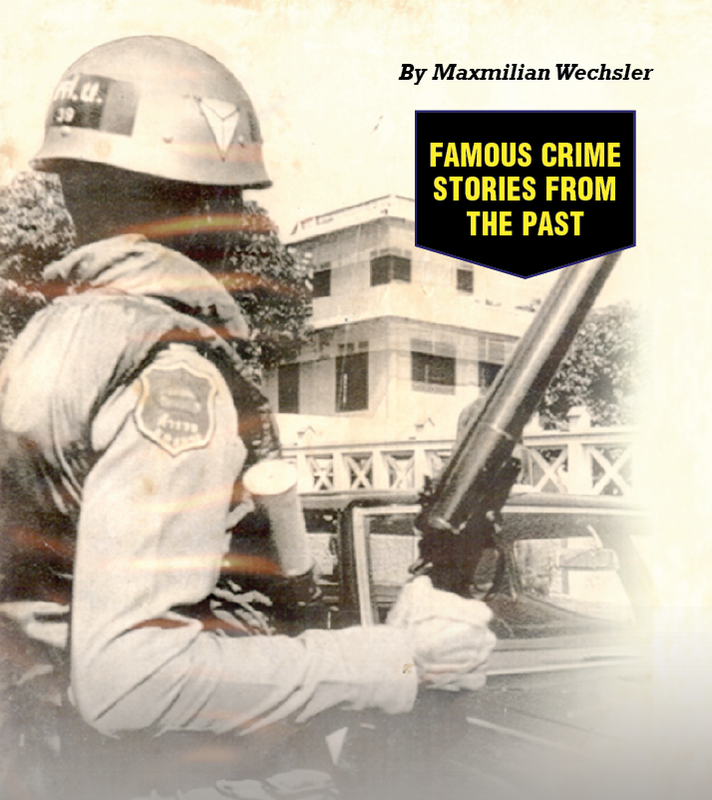
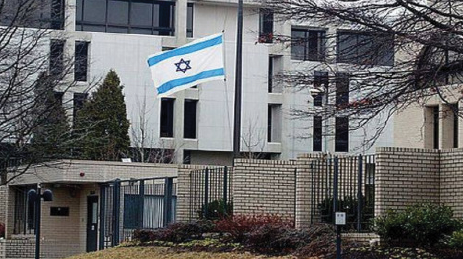
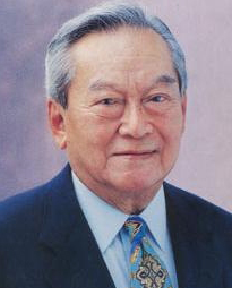
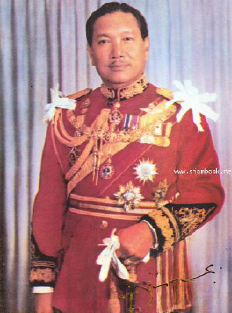
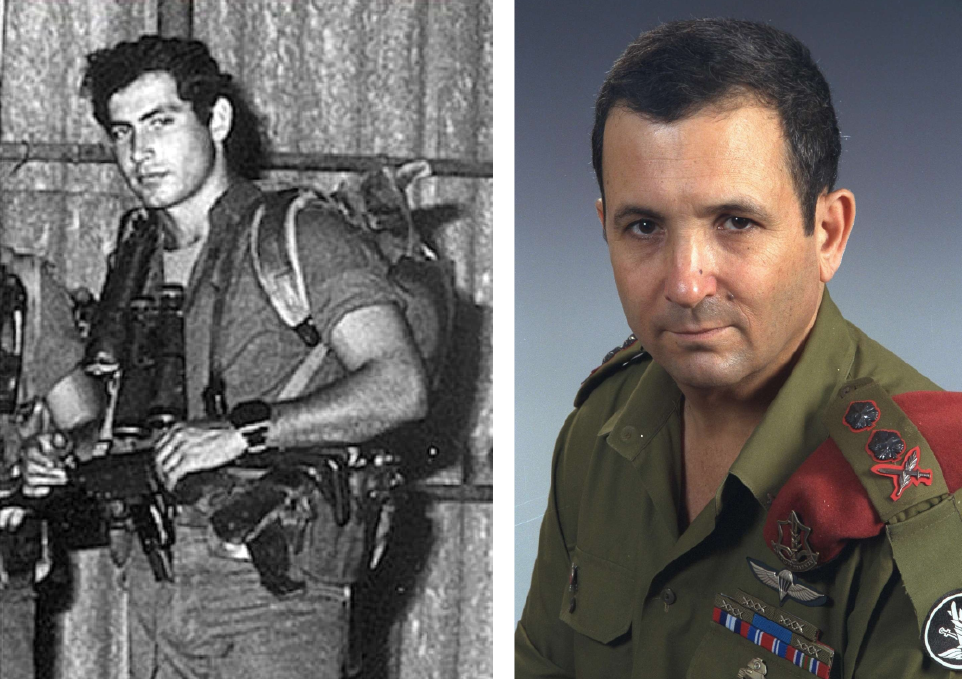
 RSS Feed
RSS Feed
















